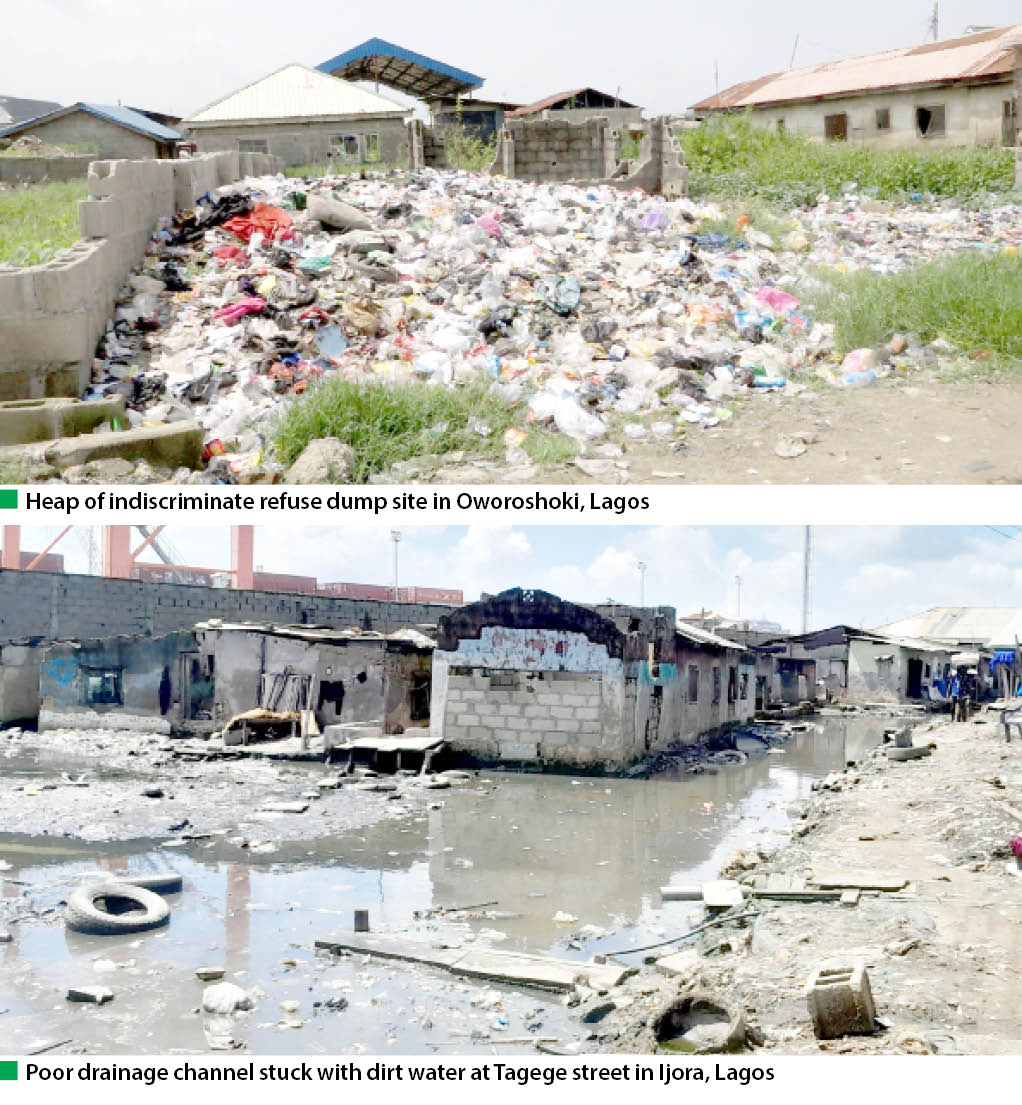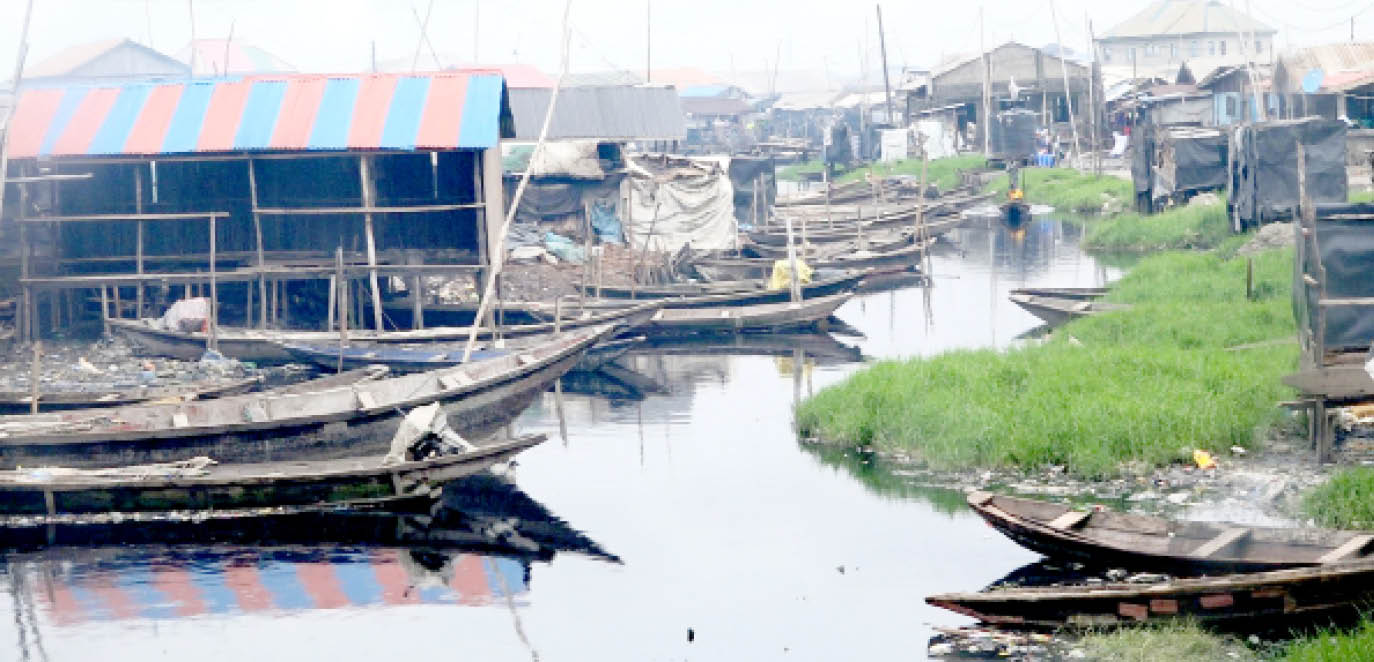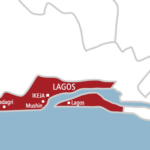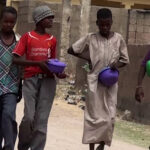Lagos, Nigeria’s largest metropolis is currently ravaged by a cholera outbreak, which has killed 24 persons and left hundreds hospitalised.
Being a densely populated city, Lagos in many cases has recorded the highest number of cases and fatalities in the event of any epidemic or pandemic. Out of over 3,000 deaths recorded during the COVID-19 pandemic, Lagos topped the chart.
And when the cholera outbreak hit the city last week, it sent shivers down the spines of many residents and the neighbouring states. Apart from its huge population, access to basic water and sanitation facilities has been a hard nut to crack battle for many communities.
According to the NCDC, cholera is an acute diarrhea disease caused by Vibrio cholerae; a gram-negative rod-shaped bacterium. It is a potentially life-threatening, primarily waterborne disease.
- Cholera: Prioritise access to public water, CAPPA tells Govt
- North West security summit begins tomorrow in Katsina
Cholera can be both endemic and epidemic.
In Nigeria, cholera is an endemic and seasonal disease, occurring annually mostly during the rainy season and more often in areas with poor sanitation, with the first series of cholera outbreaks reported between 1970 and 1990. Major epidemics also occurred in 1992, 1995-1996, and 1997.
The Federal Ministry of Health reported 37,289 cases and 1,434 deaths between January and October 2010, while a total of 22,797 cases of cholera with 728 deaths and case-fatality rate of 3.2% were recorded in 2011.

Outbreaks were also recorded in 2018 with the Nigeria Centre for Disease Control (NCDC) reporting 42,466 suspected cases including 830 deaths with a case fatality rate of 1.95% from 20 out of 36 States from the beginning of 2018 to October 2018.
The NCDC had alerted Nigerians of growing cases of cholera with a record of 65 confirmed cases of cholera with 30 deaths from 1 January to 11 June across 96 local governments in 30 states. The fatalities’ figure has moved to 37 nationwide including the one recorded in Ogun State.
NCDC has published a public health advisory, to alert the public of the increasing trend of cholera cases across the country as the rainy season intensifies.
The alert followed a reported outbreak in Lagos State, which resulted in about 60 hospital admissions and five deaths in 48 hours.
According to the NCDC, a total of 1,141 suspected cases have been recorded in 2024. Ten states contributed 90 per cent of the total number.
The states are Bayelsa, Zamfara, Abia, Cross River, Bauchi, Delta, Katsina, Imo, Nasarawa and Lagos.
NCDC noted that the disease is easily treatable if detected early and most infected people can be treated successfully through prompt administration of oral rehydration solution (ORS), to replace lost fluids and electrolytes, and appropriate antibiotics.
On Friday, the World Health Organisation (WHO) announced a significant rise in cholera cases globally, with approximately 195,000 reported cases and over 1,900 deaths across 24 countries since the beginning of the year.
The Eastern Mediterranean Region has experienced the highest number of cases, followed by Africa, South America, Southeast Asia, and Europe. Notably, no cases have been reported in the Western Region.
Enter Lagos epidemic
On Tuesday, June 11, Commissioner for Health, Prof Akin Abayomi, disclosed that at least five persons had been killed in a cholera outbreak in the state with 60 persons hospitalised.
He said cases of severe gastroenteritis had been reported in communities around Eti Osa, Lagos Island, Ikorodu and Kosofe local government areas.
“We suspect a possible cholera outbreak; however, samples have been taken for confirmation. As of April 28, 2024, Nigeria reported 815 suspected cholera cases and 14 deaths across 25 states,” he said.
According to the government, the geographical distribution of suspected cases by local government area showed that Lagos Island is the epicentre of the outbreak with 106 cases, followed by Kosofe with 49; Eti-Osa with 38; Lagos Mainland with 30; Ojo with 17; Ikorodu with 16; Shomolu with 11; Surulere with nine; Apapa with eight; Mushin with eight; Ifako Ijaiye with eight; Alimosho with four; Ajeromi-Ifelodun with four; Oshodi-Isolo with three; Ikeja with three; Ibeju Lekki with two; Badagry with two; and Amuwo-Odofin with one.
The commissioner noted that due to recent rains, the state had seen a notable increase in cases of severe vomiting and watery stools, adding that urban slums and crowded areas with poor sanitation were particularly at risk.
He explained that cholera is a highly contagious disease that causes severe diarrhoea and can be life-threatening, adding that it poses a significant health burden in areas with poor water treatment and sanitation, and could impact Lagos State.
“Cholera spreads through direct transmission by eating or drinking contaminated food or water, and indirect transmission due to poor sanitation and lack of hand washing. Symptoms of cholera include severe watery diarrhea, vomiting, rapid dehydration, muscle cramps, fever and sometimes collapse,” he said.
Four days later, Abayomi announced that the number of deaths had moved up to 15. He revealed that 350 suspected cases had been reported, with 17 confirmed to be cholera and 15 deaths.
He said laboratory investigation has confirmed the strain to be cholera sub-type O-1, adding that the subtype is associated with more severe diseases.
On Monday, in a post on his X handle, Abayomi said the identified strain is “Highly aggressive and contagious, with potential for widespread dissemination”.
Abayomi said through community-based case finding and contact tracing, the government observed that the number of cases “Has peaked and is now significantly declining”.
On Thursday, the number of suspected cases of cholera rose to 401 with 21 deaths.
The Special Adviser to the Governor on Health, Dr Kemi Ogunyemi, said in a statement that Lagos Island, Kosofe, and Eti Osa recorded the highest numbers.
The update was contained in a statement signed by the Director of Public Affairs at the state Ministry of Health, Tunbosun Ogunbanwo.
Ogunyemi was quoted to have revealed the figure while providing an update on the outbreak after meeting with members of the Lagos State Public Health Emergency Operations Centre.
According to Ogunyemi, the rise in cases was anticipated following the Ileya festivities, during which large gatherings occurred.
“Following the last update on the cholera outbreak in Lagos, which reported 350 suspected cases and 15 fatalities, the Special Adviser to the Lagos State Governor on Health, Dr Kemi Ogunyemi, disclosed that the total number of cholera cases has increased to 401 across Lagos, with Lagos Island, Kosofe, and Eti Osa recording the highest numbers.
“Dr Ogunyemi revealed this today while providing an update on the outbreak after meeting with members of the Lagos State Public Health Emergency Operations Centre. She added that the death toll has also risen to 21, an increase of six from the previously reported 15 fatalities,” the statement partly read.
The governor’s aide stated that the government is maintaining rigorous surveillance and monitoring of the situation and implementing planned programs and activities to curb the spread.
“The Ministry of Health, in collaboration with the state Ministry of Environment and its agency, the Lagos State Environmental Protection Agency, continues to collect samples of water sources, food, and beverages to identify the source of contamination. We have also intensified our surveillance activities in communities, particularly in affected local government areas, to address the situation head-on.”
Daily Trust on Sunday reports that the cases keep surging barely few days after Abayomi the cholera cases are subsiding.
“Although this is an increase from the numbers published three days ago, cases are now dramatically subsiding in previously affected LGAs due to our interventions and surveillance efforts, however, we are recording some new cases in previously unaffected LGAs, signaling the need for residents to adhere strictly to precautionary, personal, and environmental hygiene measures,” the commissioner said.
On Friday, the commissioner hinted that the number of deaths have risen to 24 with 417 suspected cases and 35 confirmed cases.
Why Lagos is at much risk – Experts
A public health specialist, Prof Best Ordinioha told Daily Trust on Sunday that Lagos is much at risk due to the population density and reduction of health workers following the ‘Japa’ syndrome.
Ordinioha, a professor of Public Health and Community Medicine, said “Lagos is very much at risk because of the population density. It means that it can explode because of close proximity and even the toilet system and facilities, it means the water can easily be transmitted taking into consideration that a lot of people have their own bore holes and their septic tank , soak away can located very close to the bore holes and from there the water can be contaminated.
And once that is done people that drink the water are likely to come down with the disease especially vulnerable persons like the children, elderly, pregnant women and people whose immune system is not too strong.”
The public health specialist also expressed worry that already Nigerians’ immune system is low due to the economic hardship.
“And of course, because of the economic situation, the average immunity of Nigerians is lower than what it used to be because of the economic situation. You need to eat good food for you to have a normal immunity,” the medical expert said.
He called for an adequate emergency response and health education and sensitization to stem the tide of the cholera outbreak.
Speaking on the vaccines, the medical expert said vaccines are available but it should not be prioritised at the period.
“To tell you the truth, the priority during an epidemic like this is not to start vaccinating, but to tell people about purifying their water without boiling or using chlorine tablets. Basically, it’s a water borne disease. Those that contract the disease should be probably treated.
“A lot of time, it’s not to organise mass vaccination because the vaccines are very low or short of potency and then of course some of them may not be that effective.”
A Lagos based medical expert, Dr. Ogedengbe Oluwatimileyin affirmed the spread of the disease, saying his hospital situated in Oworonshoki- a community riddled with open defecation and indiscriminate waste dumping has received some cases since a week ago.
“It was about a week ago when we had the first case. We don’t even know it was Cholera, most of the time patients come to the hospital with normal symptoms of Diarrhea not until we take a test do we have to know the issue.
“When we had the first case, we thought it was the usual but before we knew it, we started seeing a series of cases and in about a span of twelve hours, we recorded several cases, then we knew there was a problem going on,” he added.
He added rural communities’ dwellers are prone to contract the disease, saying lack of healthy lifestyle and access to unhygienic water led to spread of the disease.
“The most important is the one done at the community level, which is to try to ensure that any possible means the disease spreads around is impeded. Had it been there is a clean source of water to be used at the community level, then it could have reduced the source of the outbreak.
“It is very unlikely for this to happen in areas that have good water systems for people who have good healthy lifestyles but it is likely to happen more in slums where people are not financially buoyant where they lack access to good water,” he added.
Lagos steps up measures
Following the outbreak of cholera, the state government has activated its Public Health Emergency Operations Centre at Mainland Hospital, Yaba.
According to a statement on the government’s website, PHEOC was convened to address the increasing number of severe gastroenteritis cases across multiple local government areas in Lagos.
Also, the Lagos State University Teaching Hospital said it has taken precautionary measures and is on red alert, ready to respond to the cholera outbreak reported in some parts of the state.
The management of the hospital in a statement posted on its X handle, said its staff are prepared for a potential increase in cases, and that the hospital is also promoting good hygiene practices, providing clean water, and effectively treating patients with gastroenteritis symptoms.
The statement read in part, “This is to inform the general public that precautionary measures have been put in place by the management of Lagos State University Teaching Hospital, LASUTH concerning the cholera outbreak in Lagos.
“Consequently, it is important to inform the general public that the only state-owned tertiary healthcare facility, LASUTH, is on red alert and our healthcare workers as well as other stakeholders have been put on notice in readiness for a possible spread as ours is a referral facility.”
Abayomi also assured of the government’s response, urging the residents to be vigilant and adopt precautionary measures to prevent the spread of a potential cholera outbreak in the state.
As schools resumed after the Salah break, the government also called for adherence to precautionary measures to ensure children’s safety amid the cholera outbreak.
The government in an advisory issued to parents, guardians, and school authorities urged all to adhere to safety guidelines to ensure the health and safety of children.
The state called for hand hygiene by ensuring a child carries a hand sanitiser and encouraging frequent hand washing with soap and water, especially before meals and after using the restroom.
It advised schools to ensure that all school food handlers follow strict hygiene practices to prevent contamination and spread of cholera.
“Ensure that Oral Rehydration Salts (ORS) are available at school clinics or bays to manage dehydration cases promptly.
“Schools should notify the emergency hotlines immediately in case of any health emergency or suspected cholera cases,” it said.
NCDC noted that cholera can be prevented by ensuring access to safe, potable drinking water; proper sanitation and waste disposal; and appropriate hygiene including hand washing.
It noted that raw fruits and vegetables, food from street vendors, and raw or undercooked seafood should be avoided.
To reduce the risk of cholera, the NCDC advised the public to “Ensure that water is boiled and stored in a clean and covered container before drinking, practice good personal hand hygiene by washing your hands frequently with soap under clean running water.
“Use alcohol-based hand sanitiser if soap and clean water are not available. Ensure that food is well cooked before consumption. Only consume raw food such as fruits and vegetables, after washing thoroughly with safe water.”
Lagos residents beg government to provide pipe borne water
Residents have called on the state government to provide clean and safe pipe borne water, saying lack of sufficient water has led them to be at the mercy of any kind of water to survive.
The residents who spoke with Daily Trust on Sunday identified lack of clean water as one of the causes of cholera, advising the state government to take proactive measures to curtail the spread of the disease.
Chidi Emmanuel, a businessman, urged the state government to provide clean water, saying lack of enlightenment about the hazard of unsafe water has opened many to contact the disease.
“If the government should provide water but here in Nigeria, we provide water by ourselves drilling boreholes. I will advise the government to create a platform where they will go to houses to enlighten people about cholera and its effect on the human body,” he said.
Collaborating Chidi’s thought, Success Mowete advised the state government to educate the public on how to avoid the disease, saying it has a huge role to play to stem the spread of the disease.
“The government should at least find a source to disseminate information to the masses and also the masses should try to keep good hygiene, wash their hands properly, and do the proper thing you ought to do to avoid this health issue,” he said.
UNICEF demands improved clean water, sanitation
The United Nations Children’s Fund (UNICEF) has called for an urgent and improved access to clean water and sanitation in many areas following the cholera outbreak in the country.
The Chief of UNICEF Lagos Field Office, Ms Celine Lafoucrier, while responding to the outbreak, advocated a collective approach to combating the ravaging cholera.
She recommended that communities establish systems that promote key hygiene practices and transform them into a cultural norm.
She declared the need for state-led educational campaigns on cholera prevention to protect children and the population at large.
Lafoucrier said “Recurrent cholera outbreaks critically affect children and populations at large. These vulnerable groups face substantial health risks, particularly those under five, who are prone to severe dehydration and higher mortality rates.
“These outbreaks underscore the urgent need for improved access to clean water and sanitation in many areas.
“Despite the state government’s efforts to provide water to its population, the current outbreak demonstrates the need for an urgent government focus on ensuring the water provided to the population is clean and risk-free.”
She said increasing access to safe drinking water, improving sanitation and hygiene, and improving water management can prevent almost one-tenth of the global disease burden.

 Join Daily Trust WhatsApp Community For Quick Access To News and Happenings Around You.
Join Daily Trust WhatsApp Community For Quick Access To News and Happenings Around You.


